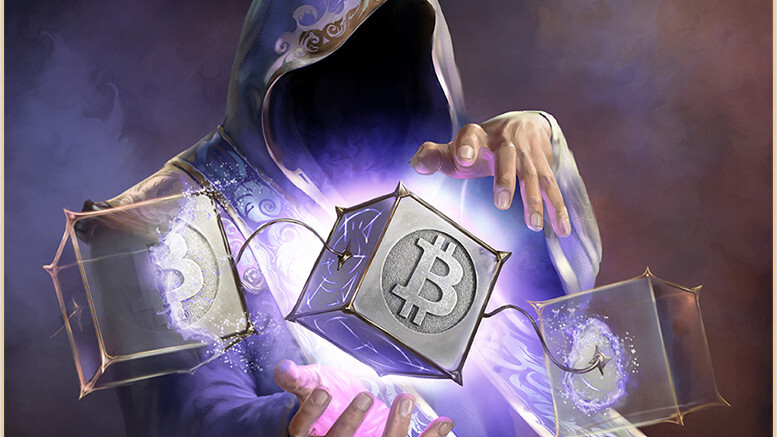
As the gaming industry is gradually shifting from traditional offline media to a multi-billion dollar online industry, a host of new possibilities for entertainment, competition and business have emerged.
But so have new problems.
In their current state, online gaming platforms and the centralized infrastructure that support them face several challenges. Unfair and complicated revenue sharing models, difficulties in managing ownership of assets, and dealing with fraud and cyberattacks are just some of the problems that both developers and gamers have to deal with.
Blockchain, the distributed ledger underlying cryptocurrencies such as Bitcoin and Ethereum, offers an alternative approach to dealing with the challenges of the gaming industry.
Blockchain technology has proven its worth as a transparent and reliable platform for secure registration and transfer of ownership without reliance on a third parties, which makes it particularly suitable for a number of domains, including online gaming.
Fair and direct distribution of dividends

The problem is that these platforms take a large cut of revenues and offer opaque compensation models. Moreover they often block earnings up to 60 days before handing them out to developers.
In comparison, blockchain can provide a robust platform for a transparent gaming economy. As a transaction system that doesn’t rely on a trusted third party, blockchain enables gamers to directly connect to developers and compensate them for playing their games.
One such example is GameCredits, a blockchain firm working on a namesake gaming platform based on the Ethereum blockchain. GameCredits revolves around GAME, a crypto-token that gamers can purchase in order to acquire games or in-game content.
The platform transfers every spent GAME token directly to the wallet of the developer, and keeps transfer fees at a minimum. Developers can in turn incentivize gamers by issuing coupons and rewards on the blockchain. The direct relationship can be beneficial to both gamers and developers.
GameCredits is testing its platform with DatCroft’s Fragoria and Get The Gun. It plans to offer the solution to the entire PC and web gaming industry in the future. The company will also integrate the technology into an upcoming mobile store and gaming platform that provides in-game trade, tournaments and profile building. These additional services will be tied to an initial coin offering (ICO) for MobileGo tokens in Q2 2017.
In the future, smart contracts, code stored on the blockchain which executes upon the completion of a transaction, can create new possibilities. For instance, blockchain-based gaming platforms can evolve to create automated revenue sharing between developers and content creators.
Full ownership of in-game assets

But in order to prevent illegal duplication and cheating, gaming companies keep strict control of those gaming assets. By consequence, gamers have no ownership over their goods, often worth thousands of dollars, outside the games. Moreover, those servers themselves become targets of cyberattacks.
By preventing double-spending of cryptocurrencies, blockchain has proven its reliability in providing authentic ownership of digital assets without reliance on third-party brokers. Blockchain transactions are also tamperproof and auditable. This makes them much more resilient against fraud and cyberattacks as opposed to proprietary and ad-hoc systems developed by gaming companies. This concept is directly portable to the domain of game assets.
Beyond the Void, an online strategy game, is using the Ethereum blockchain for the administration of its in-game asset economy. Using smart contracts, BtV creates and registers ownership of in-game assets on the blockchain.
By avoiding to store virtual goods in game servers, BtV provides full ownership of in-game items outside the game. It also gives players the ability to freely buy, sell or exchange virtual assets without ties to company servers.
BtV is also exploring the idea of creating cross-game assets on the blockchain. Gamers can employ these items across multiple games.
Spells of Genesis, another game that leverages the power of blockchain, is using the technology to bring unprecedented possibilities to the online gaming world. Developed by the Swiss-based EverdreamSoft, SoG is the first game to incorporate the full concept on digital trading card games.
SoG issues cards on the blockchain in limited numbers, ensuring both rarity and authenticity. Players and collectors can buy or sell cards in or out of the game with BitCrystals, the game’s proprietary cryptocurrency.
Blockchain-based gaming economies are still in their preliminary and trial phases. Beyond the Void recently entered beta testing limited to ICO participants. EverdreamSoft is still testing Spells of Genesis with 6,000 players. Other blockchain games are either in development or funding phase. But according to the developers, results show that gamers will pay more if they have true ownership of their assets.
It’s still too early to give a final verdict. But a decentralized approach to solving the challenges of the gaming industry looks promising.
Blockchain might pave the way for new types of games and business models. The coming months and years will prove whether the technology can transform the future of developing and playing games.
Get the TNW newsletter
Get the most important tech news in your inbox each week.





